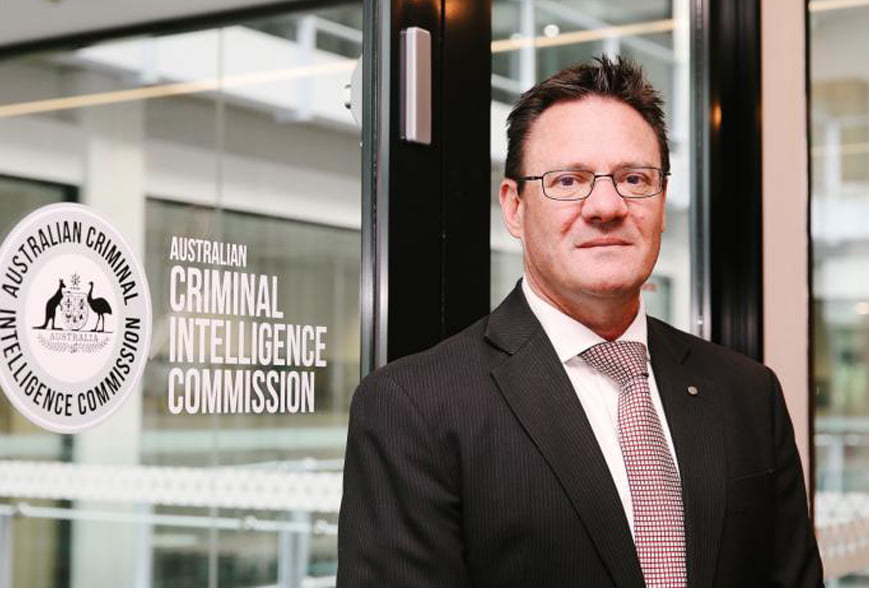At least $26 million in taxpayer funds was lost on the national crime intelligence commission’s doomed biometrics project before it was canned earlier this year.
In June the ACIC terminated its contract with NEC Australia to replace its existing National Automated Fingerprint Identification System with a “multi-modal biometric identification” service that incorporated fingerprints, footprints and facial recognition.
The initial $52 million tender was awarded to NEC in early 2016, but costs for the project had estimated to have ballooned out to more than $90 million.

At a senate inquiry late last week, Australian Criminal Intelligence Commission head honchos fronted up to explain the failed project and why it was terminated.
ACIC chief executive Michael Phelan told senators that at least $26 million has been lost to the project, and an additional $9 million will have to be spent annually to keep the legacy system running.
“We’re trying to repurpose as much as we can, particularly some of the hardware we were contractually bound to purchase,” Mr Phelan told the senate committee.
“We could safely assume that $26 million has been sunk into that that won’t be recovered, at a minimum. It’s not good,” he said.
The ACIC boss also elaborated on why the project was scrapped. While it was reported that the project was delayed and over-budget, Mr Phelan said the project would have required a further $47 million to be completed, and that it would only provide a “marginally better” service than the existing system.
“At that particular point in time the amount of money that was required to complete the system was too large an amount given the amount of utility I was going to get out of the system,” he said.
“The total outlay would have far outweighed the benefit we would’ve got from building the system. Our assessment was that it would have been marginally better than what we already had.
“So just on a cost-benefit analysis, spending that extra $47 million from that point of time was not worth the Commonwealth expenditure.”
There are no current plans to try to replace the existing system again, Mr Phelan confirmed, with an additional $9 million annually to be paid to provider IDEMIA to keep it running.
“We are focusing on making sure that for the long-term I can stabilise the fingerprint system. Later on we will explore opportunities again to determine how best to go forward with other biometrics, including facial recognition, to fuse them with the national fingerprint system,” he said.
“But I want to be able to walk before we run. It’s important we work out how we’re going to use facial recognition before I spend a whole heap of money on integrating it with other systems.”
InnovationAus.com revealed in June that NEC Australia staff had been escorted from the government building by security after the project was suspended by ACIC.
It was then officially terminated a week later, with NEC Australia expressing “extreme disappointment”, and claiming the project had been terminated “by convenience” rather than because the company hadn’t delivered on the contract.
Mr Phelan said this was the “best alternative to be able to look after the government money”.
“I’ve cast no aspersions whatsoever on NEC’s product. I’ve never said their product doesn’t work, but the implementation for what we had was too expensive given the uplift in the project. We would have had a marginal benefit, but that was not worth me spending an extra $47 million,” he said.
The ACIC had been working to “keep the project alive” for more than six months before it was ultimately scrapped, Mr Phelan said, with workshops held with NEC in December and February.
An extraordinary meeting of the ACIC board was then held in February, where the budget for the project was increased to $63 million.
But Mr Phelan said it then soon became clear that the project would not meet the timeline with the additional budget, and he decided that it was “simply not worthwhile to continue”.
An Australian National Audit Office report on the failed project is set to be released before the end of the year, focusing on the awarding of the tender to NEC Australia and the ACIC’s oversight of the project.
The ACIC has already indicated that it would attempt to have some elements of the report suppressed, including sensitive data that it said may be included “inappropriately”.
Do you know more? Contact James Riley via Email.

